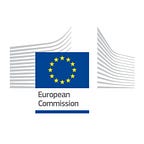EUROPEAN VIEWS: Positive feelings and optimism about the EU
One year after the UK voted to leave the EU, an increasing majority of people in the EU are optimistic about the future of the Union. The latest Eurobarometer poll shows that trust in the European Unions is growing and that citizens are now also optimistic about the state of their national economy.
The Spring 2017 Standard Eurobarometer has just been published, and it confirms the positive trends about the future and image of the EU which had been released ahead of the European Council in June. The new publication offers five main trends to take away.
1. Optimism and trust in the EU are on the rise
A majority of Europeans (56%) are optimistic about the future of the EU (+6 points since Autumn 2016). Some countries record an exceptional performance on this question: in the last six months optimism has raised by 14 points in France, by 13 in Denmark, by 10 in Portugal, by 8 in Finland and in the Netherlands. Moreover, trust in the EU continues to be on the rise and stands at 42% (up from 36% in autumn 2016 and 32% in autumn 2015) and 40% of Europeans have a positive image of the EU (+5 points since autumn 2016) with the number of respondents with a positive image increasing in 24 Member States.
Read also: The Future of the EU: optimism is on the rise
2. Half of Europeans believe their country’s economy is recovering
Almost half of Europeans think that the current situation of their national economy is ‘good’ (46%, +5 points since autumn 2016). This proportion has increased significantly in recent years (+20 points since spring 2013; +26 points since spring 2009). These data vary across countries, but increase of the positive opinion about the economy in the last six months is recorded in 22 countries from different regions of Europe: +19 points in Finland; +18 in Portugal; +11 in Hungary and Belgium; +10 in Poland and Sweden; +7 in France, Denmark and Estonia.
3. Great support for the euro
60% of respondents in the EU are in favour of a European economic and monetary union with the euro as a single currency (+5 points in one year). When it comes to the euro area, this support is shared by 73% of respondents (+5 points). It has significantly increased in Austria (68%, +6 points since autumn 2016), Cyprus (60%, +8 points), Romania (60%, +5 points) and Italy (58%, +5 points). 80% of respondents or more support the euro in six countries: Slovakia, Germany, Estonia, Ireland, Slovenia and Luxembourg.
4. Feeling of being a European citizen at its highest level
68% of Europeans feel they are citizens of the EU: this is the highest level ever reached on this indicator. In the euro area, the same indicator reaches 70% (+2 points since autumn 2016). In six countries, over 80% of respondents say yes when asked if they feel citizens of the EU: Ireland, Germany (82%), Denmark, Finland (81%), Poland and Portugal (80%).
5. For the first time, terrorism is seen as the major challenge
Terrorism has become the issue most cited by citizens cite when it comes to challenges that the EU is currently facing (44%, +12 percentage points since autumn 2016). Immigration, which has been a top concern since spring 2015, is now the second most frequently cited challenge (38%, -7 points). It is well ahead of the economic situation (18%, -2), the state of Member States’ public finances (17%, unchanged) and unemployment (15%,-1). At national level, the main concerns remain unemployment (29%,-2) and immigration (22%,-4) although both are declining.
The “Spring 2017 — Standard Eurobarometer” (EB 87) was conducted through face-to-face interviews between 20 and 30 May 2017. A total of 33,180 people were interviewed across the EU Member States and in the candidate countries. You can find the report and the integrity of the results in the Eurobarometer’s portal here.
